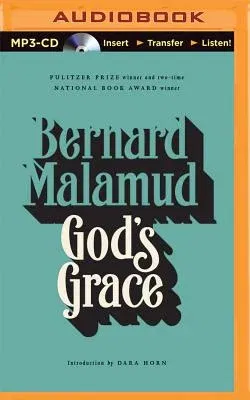Bernard Malamud
(Author)God's GraceMP3 CD, 6 January 2015

Qty
1
Turbo
Ships in 2 - 3 days
In Stock
Free Delivery
Cash on Delivery
15 Days
Free Returns
Secure Checkout

Language
English
Publisher
Audible Studios on Brilliance
Date Published
6 Jan 2015
ISBN-10
150121537X
ISBN-13
9781501215377
Description
Product Details
Author:
Book Format:
MP3 CD
Country of Origin:
US
Date Published:
6 January 2015
Dimensions:
16.76 x
13.21 x
1.02 cm
ISBN-10:
150121537X
ISBN-13:
9781501215377
Language:
English
Publisher:
Weight:
68.04 gm